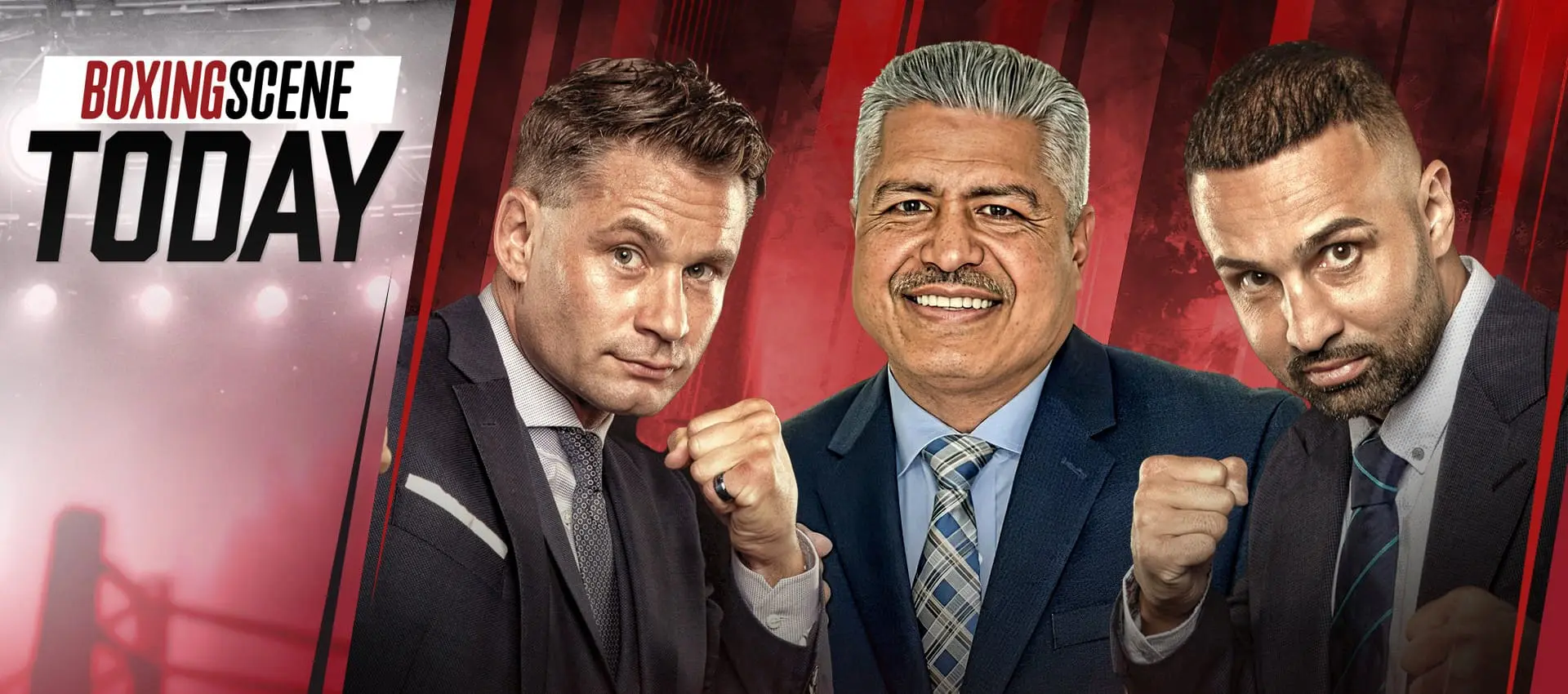
Sunday | Sep 14, 2025 | 12:00 AM EST
Naoya Inoue vs Murodjon Akhmadaliev
Yoshiki Takei vs Christian Medina Jimenez
Yuni Takada vs Ryusei Matsumoto
Nagoya, Japan
'BoxingScene Today'Talk Show
Pauli, Algieri, and Coach Garcia breakdown today's top stories

Upcoming episode - coming soon
Boxing Interviews
Interviews with boxing biggest stars

'ME AND ITAUMA IS AN AWESOME FIGHT' Teremoana Jr. talks Moses Itauma matchup down the line
Aug 28, 2025 |

Gabriela Fundora talks family bond with brother Sebastian Fundora
Aug 28, 2025 |

Erickson Lubin explains why his fight with Vergil Ortiz Jr. will be unforgettable
Aug 27, 2025 |

Jarrell Miller SLAMS Michael Hunter for fight breakdown
Aug 26, 2025 |








